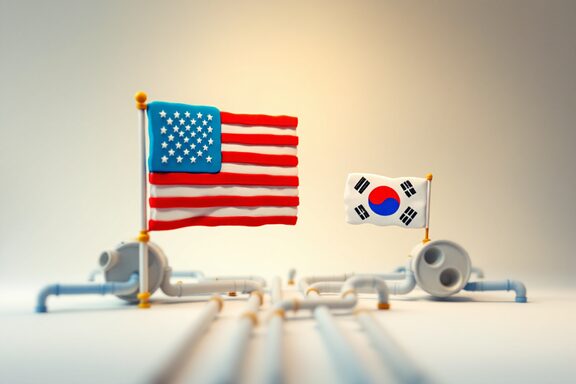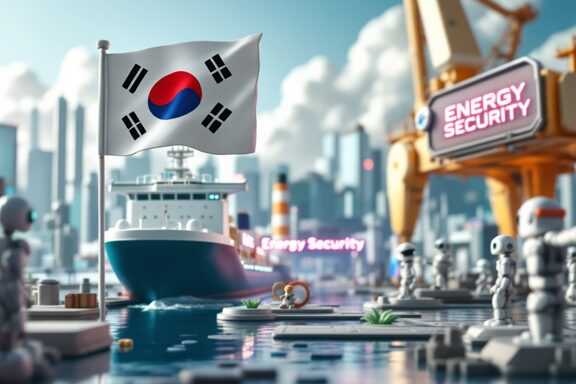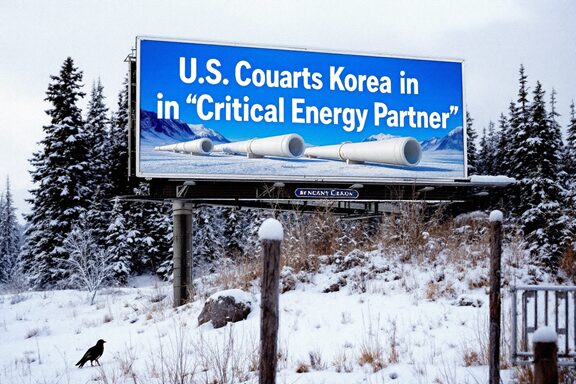U.S. LNG: Korea’s New Energy Security Lifeline in the AI Era
Subtitle: How American Natural Gas Could Reshape Korea’s Energy Independence Strategy
The expanding partnership between South Korea and the United States in liquefied natural gas (LNG) trade is emerging as a cornerstone for Korea’s energy security strategy. During the Energy Innovation Forum hosted by the American Chamber of Commerce in Korea on April 18, 2025, experts highlighted the critical importance of diversifying energy sources for a nation with a staggering 94% energy dependency rate. As artificial intelligence drives unprecedented demand for power, could American LNG be the solution to Korea’s energy vulnerability?
Strategic Energy Alliance Forms Amid Global Uncertainties
Korea-U.S. energy cooperation is rapidly evolving into a strategic pillar for both nations, with LNG at the center of this partnership.
- James Kim, President of the American Chamber of Commerce in Korea, emphasized that “energy has emerged as a strategic axis of Korea-U.S. cooperation”
- The forum in Seoul provided a platform for both countries to discuss strengthening energy supply chain resilience
- This partnership gains significance against the backdrop of global energy market volatility and geopolitical tensions
AI Revolution Drives Urgent Need for Energy Security
The explosive growth of artificial intelligence is creating unprecedented demand for reliable energy sources to power data centers.
- Korea’s burgeoning AI industry is driving a substantial increase in electricity consumption through expanding data center operations
- American LNG imports represent a more stable energy source compared to traditional suppliers from politically volatile regions
- Energy experts view this partnership as critical for supporting Korea’s technological advancement without compromising energy security
Policy Challenges Require Strategic Navigation
Both countries face policy hurdles that will need careful management to maximize the benefits of this energy partnership.
- An Duk-geun, Korea’s Minister of Trade, Industry and Energy, stressed the importance of “strengthening close cooperation with major countries including the United States”
- Korea must develop strategic responses to potential U.S. policy shifts, including possible amendments to the Inflation Reduction Act and tariff increases
- Tommy Joyce, Acting Assistant Secretary for International Affairs at the U.S. Department of Energy, revealed that “the Trump administration plans to export 20 million tons of LNG to Asia annually”
Economic Benefits Beyond Energy Security
The expanded LNG partnership offers significant economic advantages for both nations beyond the immediate energy security benefits.
- Korea could potentially reduce its energy costs through more competitive pricing from diversified supply sources
- The partnership creates opportunities for technology exchange and joint research in energy efficiency and distribution
- At current exchange rates, increased energy trade adds significant value to the bilateral economic relationship, with LNG imports potentially worth billions of dollars (₩1.4+ trillion)

The strengthening Korea-U.S. energy alliance represents a transformative approach to energy security in an increasingly uncertain global landscape. As Korea continues to navigate its complex energy needs while pursuing ambitious climate goals, American LNG may prove to be not just a stopgap measure but a long-term strategic asset. The question remains: Will this partnership evolve into a model for energy cooperation in the Indo-Pacific region?
Keywords
LNG imports, energy security, Korea-U.S. cooperation, AI energy demands
Hashtags
#EnergyAlliance #KoreaUSLNG #AIEnergyFuture
한국어 요약
- 미국산 LNG 수입 확대는 94%에 달하는 한국의 에너지 의존도 문제 해결에 중요한 전략적 접근법으로 부상
- 인공지능 산업의 급격한 성장에 따른 데이터센터와 전력 수요 증가로 안정적 에너지 공급원 확보 필요성 증대
- 트럼프 행정부는 연간 2000만 톤의 LNG를 아시아에 수출할 계획을 밝히며 한미 에너지 협력 강화 신호
- 한국 정부는 미국의 인플레이션감축법(IRA) 개정과 관세 인상 가능성에 대한 전략적 대응책 마련이 필요






